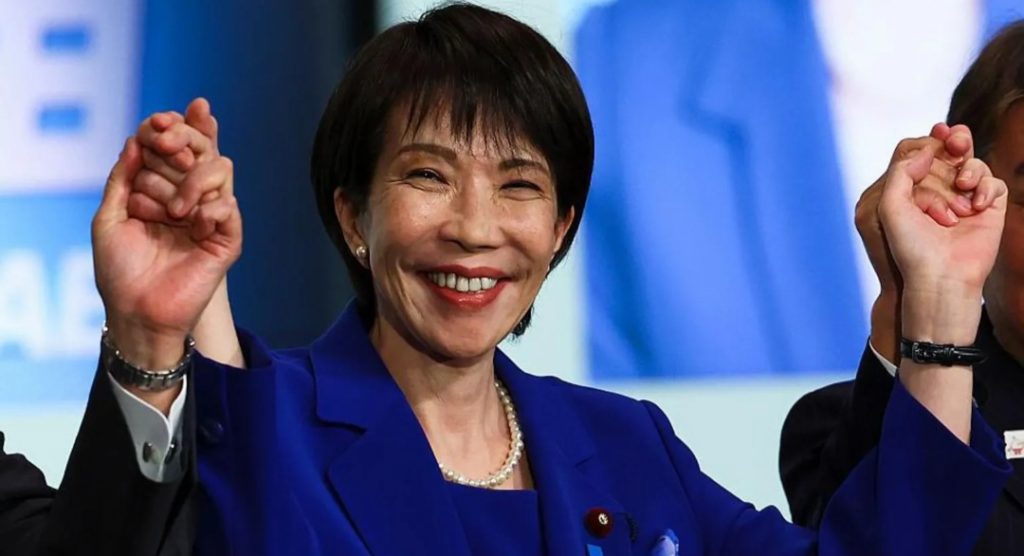
Crystal Dike
Japan’s parliament has elected Sanae Takaichi as the country’s first female prime minister, marking a historic moment in Japanese politics.
The 64-year-old politician won a decisive victory on Monday, securing 237 votes in the Lower House and 125 in the Upper House to become the new leader of the ruling Liberal Democratic Party (LDP).
A staunch conservative and admirer of former British Prime Minister Margaret Thatcher, Takaichi takes office at a challenging time for the world’s fourth-largest economy, which is grappling with a rising cost of living and agrowing public frustration.
Takaichi is the fourth Japanese prime minister in five years, following a period of political instability marked by plunging approval ratings and corruption scandals.
Although she defeated four male contenders to win the LDP leadership in early October, her path to power appeared uncertain when the LDP’s long-time coalition partner, Komeito, withdrew its support. However, a last-minute deal on Monday night with the right-leaning Japan Innovation Party (JIP), also known as Ishin, secured her majority.
Takaichi and the LDP will next face voters in 2028.
On the international front, she faces immediate diplomatic tests. Relations with South Korea—which had only recently improved—could become strained due to her nationalist stance. She is also seen as hawkish toward China, continuing the hardline approach of her late political ally and former prime minister Shinzo Abe.
Her first major foreign policy challenge will come next week when she meets with US President Donald Trump. Although both countries have agreed on a tariff deal, Trump’s previous remarks questioning the US-Japan security treaty and demanding higher Japanese defence contributions have raised fresh concerns in Tokyo.
Known as Japan’s “Iron Lady” for her admiration of Thatcher, Takaichi has held several key ministerial positions over her decades-long career. She became LDP leader after former Prime Minister Shigeru Ishiba resigned following heavy midterm election losses.
Despite her historic achievement, Takaichi’s conservative views have drawn mixed reactions. She opposes same-sex marriage and resists proposals allowing married women to retain their maiden names, positions that some critics argue undermine gender equality.
“Everyone’s like, ‘Wow, she’s the first female prime minister in Japanese history and that’s a great opportunity for women’s empowerment,’” said 21-year-old student Ayda Ogura. “But if you look into her political beliefs, you realise that many of her views are quite traditional.”
During her campaign, Takaichi pledged to expand hospital services for women’s health and improve recognition for household support workers, signalling her focus on social and domestic policy reforms.
Her leadership marks both a symbolic breakthrough and a complex new chapter for Japan’s politics.
